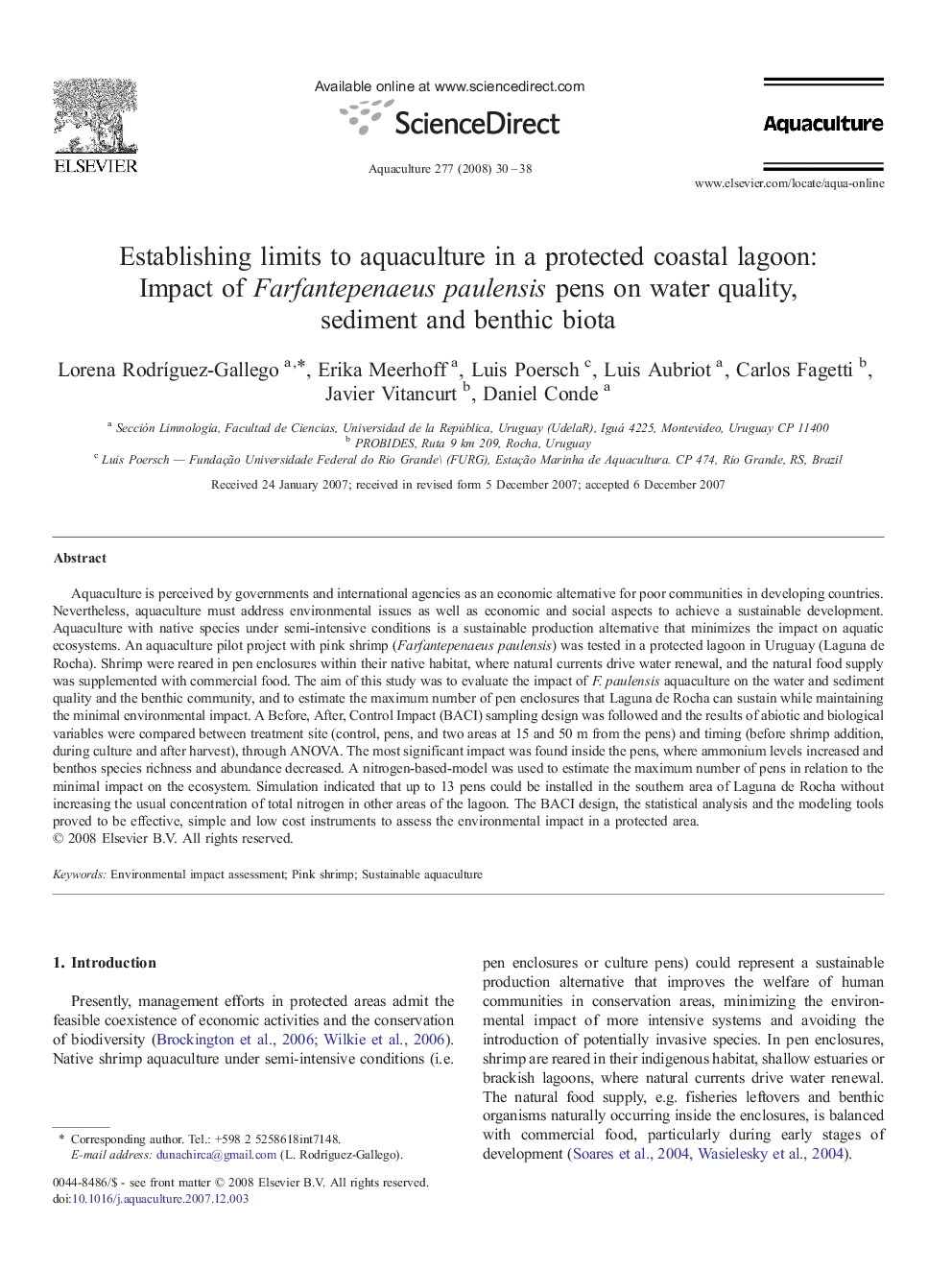| Article ID | Journal | Published Year | Pages | File Type |
|---|---|---|---|---|
| 2424617 | Aquaculture | 2008 | 9 Pages |
Aquaculture is perceived by governments and international agencies as an economic alternative for poor communities in developing countries. Nevertheless, aquaculture must address environmental issues as well as economic and social aspects to achieve a sustainable development. Aquaculture with native species under semi-intensive conditions is a sustainable production alternative that minimizes the impact on aquatic ecosystems. An aquaculture pilot project with pink shrimp (Farfantepenaeus paulensis) was tested in a protected lagoon in Uruguay (Laguna de Rocha). Shrimp were reared in pen enclosures within their native habitat, where natural currents drive water renewal, and the natural food supply was supplemented with commercial food. The aim of this study was to evaluate the impact of F. paulensis aquaculture on the water and sediment quality and the benthic community, and to estimate the maximum number of pen enclosures that Laguna de Rocha can sustain while maintaining the minimal environmental impact. A Before, After, Control Impact (BACI) sampling design was followed and the results of abiotic and biological variables were compared between treatment site (control, pens, and two areas at 15 and 50 m from the pens) and timing (before shrimp addition, during culture and after harvest), through ANOVA. The most significant impact was found inside the pens, where ammonium levels increased and benthos species richness and abundance decreased. A nitrogen-based-model was used to estimate the maximum number of pens in relation to the minimal impact on the ecosystem. Simulation indicated that up to 13 pens could be installed in the southern area of Laguna de Rocha without increasing the usual concentration of total nitrogen in other areas of the lagoon. The BACI design, the statistical analysis and the modeling tools proved to be effective, simple and low cost instruments to assess the environmental impact in a protected area.
